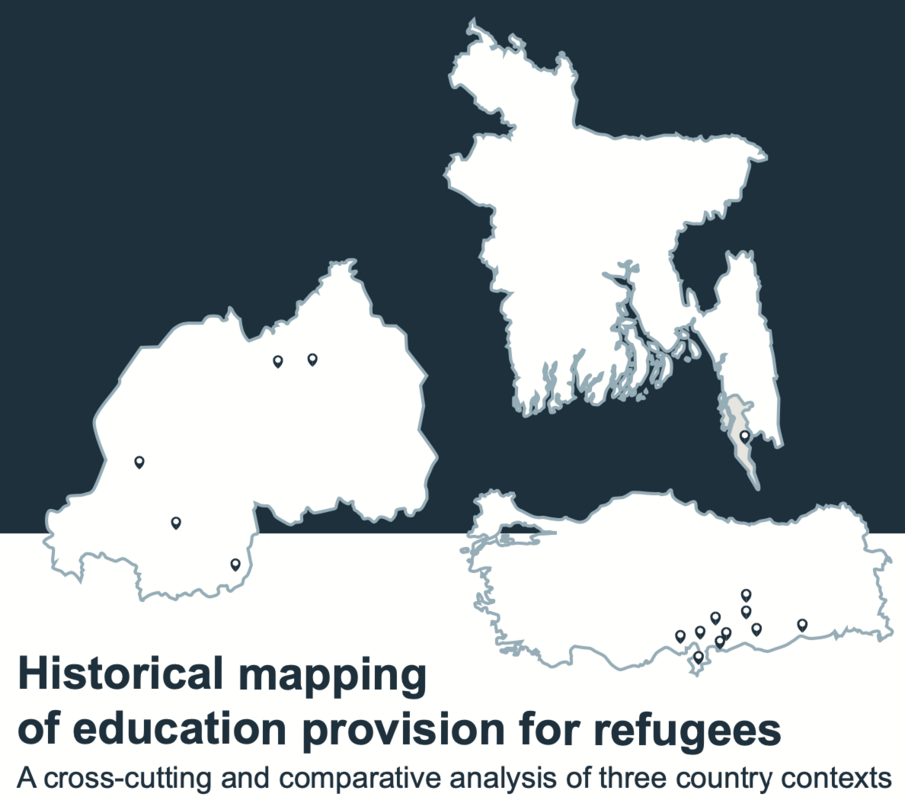
Jigsaw was commissioned by the Global Partnership for Education and UNHCR to conduct a historical mapping of education provision for refugees, and we undertook the work in collaboration with our partner organisation Refugee Education UK. The outputs of the work are country case histories on Bangladesh, Rwanda and Turkey, plus a cross-cutting analysis:
- Bangladesh: A case history of education provision for refugees from 2017 to 2019
- Rwanda: A case history of education provision for refugees from 2012 to 2019
- Turkey: A case history of education provision for refugees from 2011 to 2019
- Historical mapping of education provision for refugees: A cross-cutting and comparative analysis of three country contexts
This research contributes to a greater understanding of the potential points of convergence between governments and their humanitarian and development education partners, in order to more effectively address the educational needs of displaced populations and the communities that host them. The research objectives were:
- To document which factors in the early stages of a refugee response seem to determine whether refugees are integrated into national education systems as opposed to being educated in separate systems
- To identify factors for further study that could shed light on essential program and policy actions that lead to greater effectiveness and sustainability of refugee education responses from the emergency stage forward.
Within these objectives, the case histories focused on government policy and leadership; the contribution and engagement of partners; and humanitarian and development financing.
This study employed an experimental design using in-depth interviews to construct historical timelines and understand key decision-making processes within the events that took place. The findings highlighted multiple lessons learned as well as what can be adopted as good practice by the wider sector of refugee education. We are very grateful for all the individuals who took time to share their expertise with us, and trust that the studies provide a useful contribution to future planning and policy formation.

